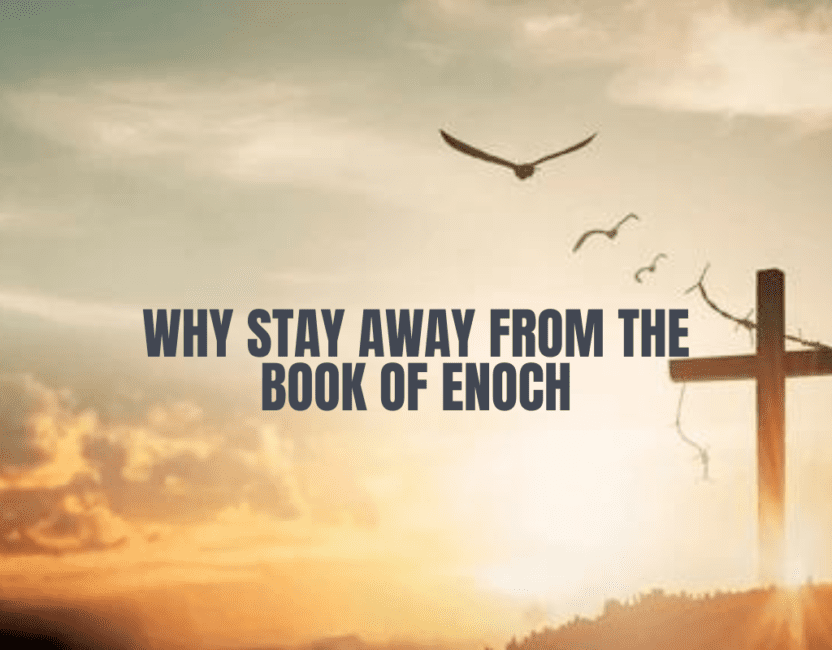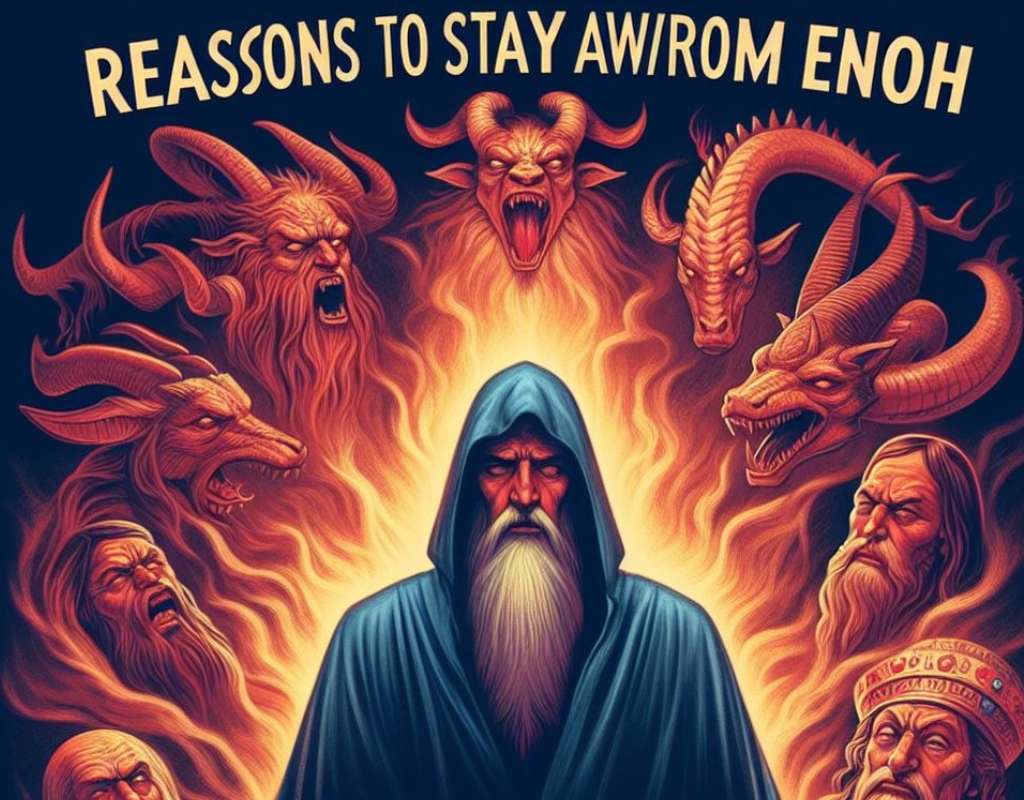In the vast expanse of religious literature, the Book of Enoch stands as a notable text that often intrigues both believers and scholars. Yet, within Christian circles, a contentious debate ensues regarding its place in biblical study. In this article, we aim to unravel the reasons behind the prevailing caution and counsel to steer clear of the Book of Enoch.

The Book of Enoch: A Glimpse into its Content
Background and Context
The Book of Enoch comprises a compilation of ancient Jewish writings attributed to Enoch, a biblical figure mentioned briefly in Genesis 5:18-24. Despite its absence from the biblical canon in most Christian traditions, it garnered significant reverence within certain early Jewish communities and has endured through various iterations over the centuries.
Content Overview
Diving into its content reveals a tapestry of intricate accounts, featuring angelic beings, celestial realms, prophetic revelations, and moral precepts. While some segments echo familiar themes found in canonical scriptures, others introduce novel concepts and narratives that diverge from orthodox Christian teachings.
Unraveling the Story of Enoch
Enoch, the central figure of the book, is portrayed as a righteous and pious individual who walked closely with God. According to the biblical account in Genesis, Enoch “walked faithfully with God” and was subsequently taken by God, sparing him from experiencing death. This exceptional fate has captivated the imagination of theologians and believers throughout history, leading to the elaboration of his story in various religious texts, including the Book of Enoch.
In the Book of Enoch, Enoch’s character serves as a conduit for divine revelations and visions, offering insights into celestial mysteries and cosmic events. His encounters with angelic beings, such as the Watchers, and his journeys through heavenly realms provide a window into esoteric realms of spiritual knowledge and apocalyptic prophecy.
Reasons to Stay Away from the Book of Enoch

Non-Canonical Nature
The foremost reason for exercising caution lies in the book’s exclusion from the sacred canon of scripture. The process of canonization, guided by divine inspiration and the discernment of early Christian communities, established a definitive collection of authoritative texts for faith and practice. The omission of the Book of Enoch from this corpus raises doubts about its divine origin and theological reliability.
Lack of Confirmation
Despite thematic resemblances to canonical texts, the Book of Enoch lacks explicit endorsement or citation by New Testament writers. This absence of validation undermines its status as inspired scripture and calls into question its theological significance and doctrinal authority.
Theological Concerns
Certain theological concepts within the Book of Enoch may diverge from orthodox Christian beliefs, introducing doctrinal discrepancies and theological ambiguities. The portrayal of angelic beings, cosmological frameworks, and eschatological events may conflict with the cohesive theological narrative presented in canonical scriptures, necessitating careful discernment and theological scrutiny.
Cultural and Historical Context
Understanding the cultural and historical milieu in which the Book of Enoch emerged is essential for its accurate interpretation. The book reflects the religious perspectives, literary conventions, and theological debates of its time, requiring contextual analysis to discern its intended meaning and theological implications.
Potential for Misinterpretation
The symbolic imagery and allegorical narratives woven throughout the Book of Enoch render it susceptible to diverse interpretations, opening avenues for theological speculation and doctrinal confusion. Without a solid foundation in biblical hermeneutics and theological principles, readers risk misinterpreting its teachings and veering into theological error.
A Call for Discernment
The debate surrounding the Book of Enoch underscores the need for discernment and theological acumen in biblical interpretation. While scholarly inquiry and historical curiosity may warrant exploration, caution is advised to prevent doctrinal confusion or theological syncretism.
Seeking Truth in Scripture
Ultimately, the foundational truths of Christian faith are grounded in the canonical scriptures, which center on the person and work of Jesus Christ. Any text or doctrine that detracts from this central message risks leading believers astray from the core tenets of the Christian faith. Therefore, while the Book of Enoch may offer historical insights and spiritual revelations, it cannot supplant the authoritative teachings of the biblical canon.
Video
Follow us on Twitter. –>GOALMDCAT
Conclusion
In conclusion, while the allure of exploring the mysteries contained within the Book of Enoch may be enticing, it is imperative to approach it with discernment and theological scrutiny. By anchoring our faith in the canonical scriptures and prioritizing the teachings of Jesus Christ and the apostles, we safeguard ourselves against doctrinal error and theological confusion.
Read More
FAQs (Frequently Asked Questions)
Q: What are some key arguments against the Book of Enoch?
A: Some key arguments against the Book of Enoch include its lack of divine inspiration, its exclusion from the Bible, its rejection by both Judaism and mainstream Christianity, and the absence of historical verification.
Q: Why is divine inspiration important in biblical texts?
A: Divine inspiration ensures that the writings are directly inspired by God, authenticating their message for humanity and establishing their authority as scripture.
Q: What is the significance of the Book of Enoch in religious history?
A: The Book of Enoch holds historical significance as an ancient Jewish religious text, offering insights into ancient beliefs and visions, but it did not make it into the canonized books of the Bible.
Q: What is the significance of the Book of Enoch in religious history?
A: The Book of Enoch holds historical significance as an ancient Jewish religious text, offering insights into ancient beliefs and visions, but it did not make it into the canonized books of the Bible.
Q: Are there any positive aspects to the Book of Enoch?
A: While not recognized as scripture, the Book of Enoch is studied by scholars for its historical and cultural insights, providing value from an academic perspective.
Q: Can individuals read the Book of Enoch if they choose to?
A: The decision to read the Book of Enoch rests with the individual, but it should be approached with discernment, understanding its non-canonical status and potential theological implications.
